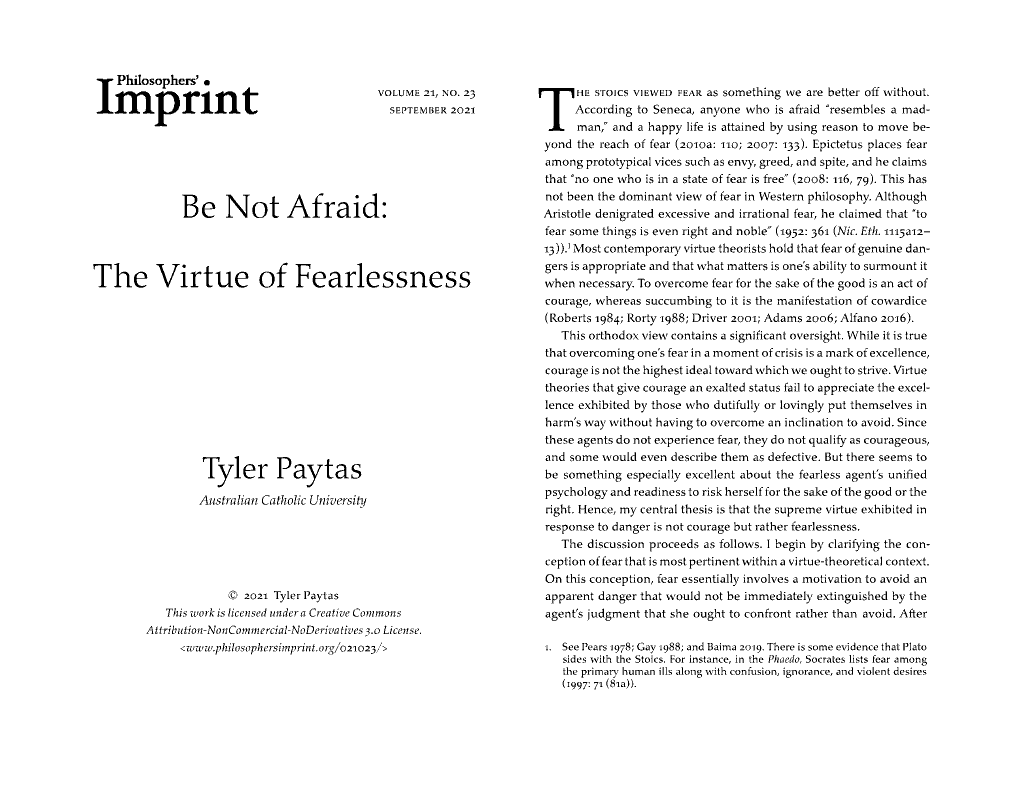Be Not Afraid: The Virtue of Fearlessness
Skip other details (including permanent urls, DOI, citation information): This work is licensed under a Creative Commons Attribution-NonCommercial-NoDerivatives 4.0 International License. Please contact [email protected] to use this work in a way not covered by the license.
For more information, read Michigan Publishing's access and usage policy.
Abstract
Most contemporary virtue theorists hold that fear of genuine dangers is appropriate, and that what matters is one’s ability to surmount it when necessary. To overcome fear for the sake of the good is an act of courage, while succumbing to it is the manifestation of cowardice. This orthodox view comprises a significant oversight. While it is true that overcoming one’s fear in a moment of crisis is a mark of excellence, courage is not the highest ideal toward which we ought to strive. Virtue theories that give courage an exalted status fail to appreciate the excellence exhibited by those who dutifully or lovingly put themselves in harm’s way without having to overcome an inclination to avoid. While courage is certainly admirable, fearlessness is more excellent in two respects. First, the fearless agent possesses more robust psychological harmony, which includes a deeply internalized acceptance of the fact that one’s personal safety is not the most important thing in life. This attribute is valuable for its own sake. Second, the fearless agent is able to successfully act in accordance with her values with greater reliability because she never has to override a desire to avoid when she ought to confront instead.



